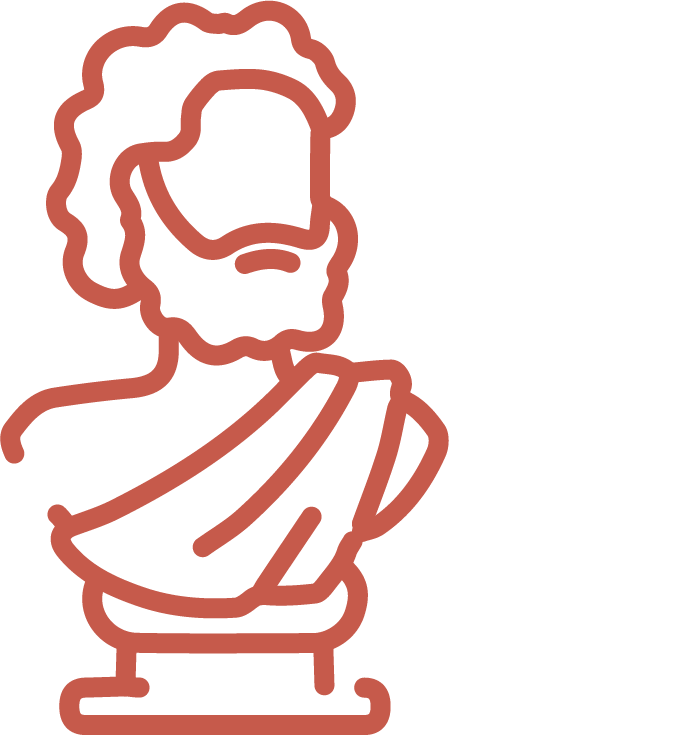IntroductORY Course:
WISDOM
The next 10-week courses start in early June 2024.
You can choose to attend:
Wellington – Philosophy House, 33 Aro St. Carparking is available.
Anywhere – online via Zoom.
Please click on one of the Enrol links. This will take you to a form where you provide a few details and arrange payment.
See below for topics covered each week.
There are three terms a year starting in early June, mid September & late January.
See calendar for dates.
Wellington
Wednesday, 7:00 - 9:30 pm
Starting: 5/6/2024, running for ten weeks
$150
Enrol
Thursday, 6:30 - 9:00 pm
Starting: 6/6/2024, running for ten weeks
$150
Enrol
Saturday, 9.30am -12.00pm
Starting: 8/6/2024, running for ten weeks
$150
ENROL
Online
Saturday, 9:30 - 11:00am
Starting: 8/6/2024, running for ten weeks
$150
Enrol
Course fee:
A concession is available on application in cases of hardship.
INTRODUCTION TO PRACTICAL PHILOSOPHY & MEDITATION
-
How philosophy can help us live richer, less stressful lives. Philosophy is the love of wisdom - and what is wisdom? The knowledge to help us master the art of living. Introduction to a short guided meditation that we will use throughout the term.
-
Modern philosophy distinguishes two types of self-knowledge. One is knowledge about one’s own particular mental and emotional states. The other is knowledge of a persistent self, that is, a self that persists whatever the mental or emotional states may be. We consider both of these in this session and look at quotes from the Tao Te Ching, Autobiography of a Yogi, Rumi and Hildegard of Bingen.
-
Explore deeper levels of awareness, and how we can become more awake to the world around us. In seeking wisdom, and a true understanding of ourselves, and the world in which we live, we have a great gift. That is the gift of awareness. We consider quotes by poets Mary Spain and William Blake, along with Plato and Shakespeare.
-
Being awake, living in the present, is very much to do with attention. This is a remarkable power, which is available to anyone. Where there is a strong power of attention, it is of great benefit not only in dealing with everyday, worldly matters, but also in connecting with the higher levels of awareness. We look at philosopher Swami Vivekananda and extracts from the book Zen Flesh, Zen Bones.
-
Over the centuries one of the key questions of philosophy has been concerned with the nature of justice and injustice. In this session we will consider what Plato said about this.
-
In this session we consider energy. What is energy? Do we find that our energy levels vary? Would we like to have more energy? Do we always have the right type of energy? Do we use our energies in the best way? We will look at a model that describes the world in relation to three energies that may be thought of as light, activity and regulation.
-
Developing Reason in Speech and Discussion. Plato’s writings mostly take the form of dialogues in which Socrates is the main speaker. In this session we consider four points which emerge from these dialogues and see how they may be applied in practice. When these are applied we may gain some insight into what is often referred to as the Socratic method or Socratic dialogue. 1. Truth is the goal 2. Be willing to be refuted 3.Listen 4. Question.
-
What is beauty? Where do we find it? Is there such a thing as absolute beauty? These are questions with which philosophers have been concerned for millennia. Why do they consider these questions? Why is beauty such an important subject? 'Beauty is not in the face; beauty is a light within the heart.' - Kahlil Gibran
-
Diversity adds to the richness of life. Is there ever a problem with diversity? Do we sometimes feel overwhelmed by diversity? Despite all these differences, what is it that unites us? What has brought us here together? What makes us the same? What do we have in common?
'All things are connected. Whatever befalls the earth befalls the sons of the earth. Man does not weave the web of life; he is merely a strand in it. Whatever he does to the web he does to himself. All things are connected.' - Chief Seattle of the Duwamish Tribe
-
What does it mean to be true to yourself? 'This above all: to thine own self be true. And it must follow, as the night the day, Thou canst not then be false to any man.' Shakespeare, Hamlet, Act I, Scene 3

